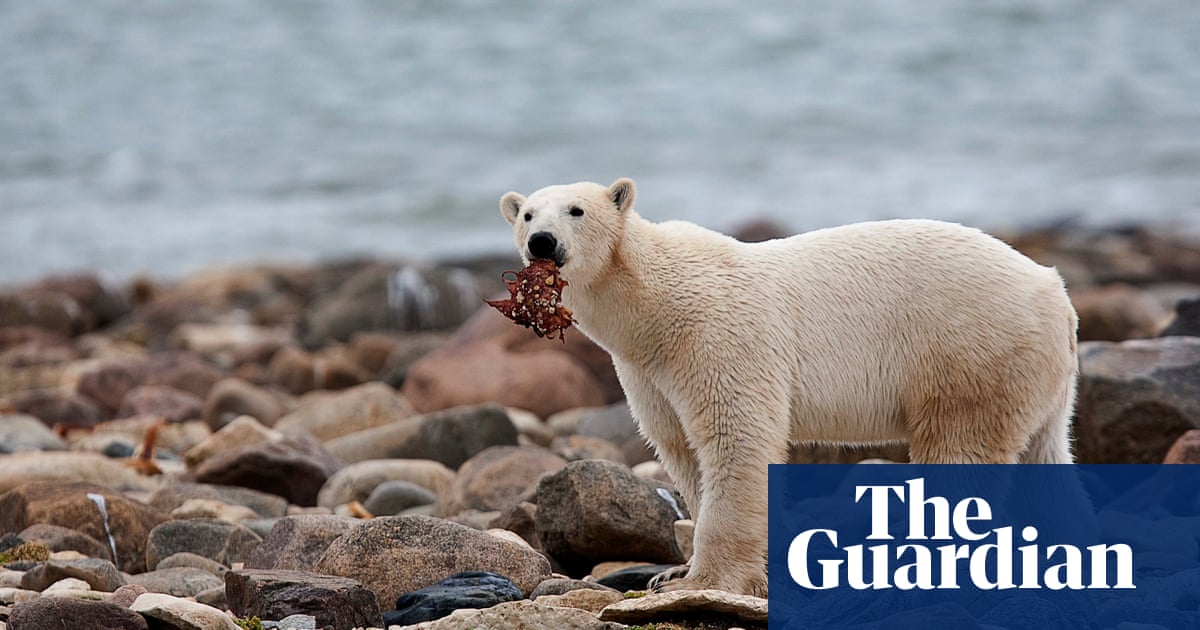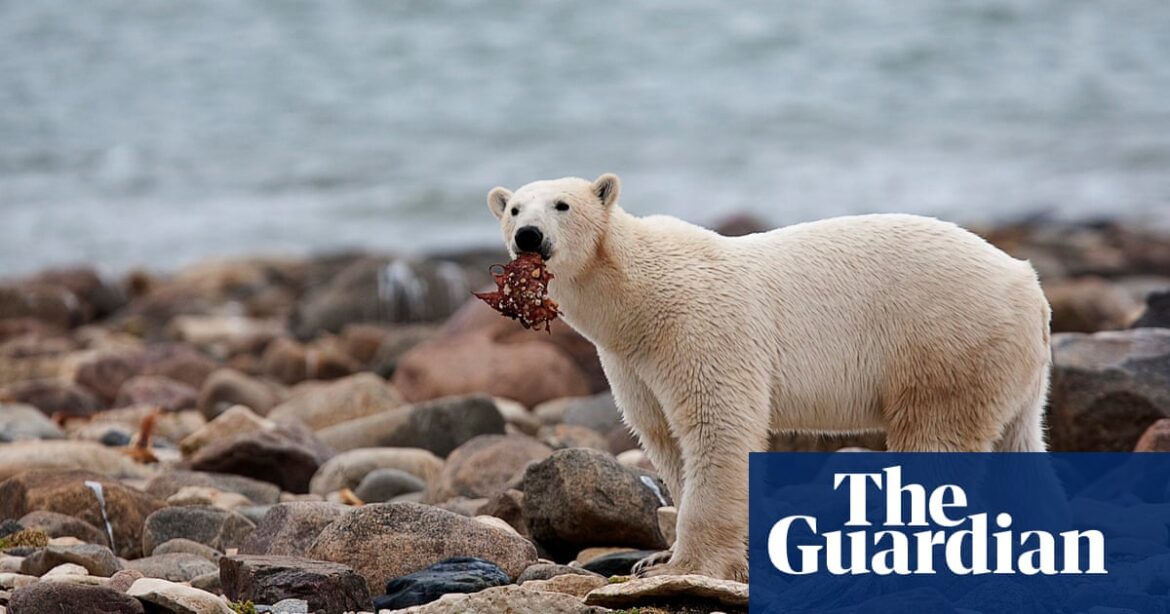
The polar bears in Hudson Bay, Canada are facing the threat of starvation due to longer periods without Arctic Sea ice caused by the climate crisis. Despite their adaptability and willingness to diversify their diets, they are still at risk.
During the winter months, polar bears rely on the frozen Arctic Ocean as a pathway to reach their primary food source: high-fat ringed and bearded seals.
During the summer when the sea ice melts, it is likely that they will conserve their energy and possibly go into a state similar to hibernation.
However, anthropogenic climate change is prolonging the duration of ice-free conditions in certain areas of the Arctic, which is experiencing a warming rate of two to four times higher than the global average. As a result, polar bears are being forced to spend increasing amounts of time on land.
A recent study of 20 polar bears in Hudson Bay indicates that even without sea ice, they will attempt to search for food.
According to Anthony Pagano, a research wildlife biologist and lead author of a study, polar bears are resourceful and clever creatures. They are known to search their surroundings for ways to survive and find food in order to meet their energy needs, showing great motivation.
A study published in Nature Communications utilized GPS collars with video cameras to monitor polar bears in western Hudson Bay for three-week intervals over three years. The area has experienced a three-week increase in ice-free conditions between 1979 and 2015, resulting in bears spending approximately 130 days on land in the past decade.
The study revealed that out of the group, two bears did in fact take a break and decrease their overall energy output to levels comparable to hibernation, while the remaining 18 remained active.
According to the research, these energetic bears may have felt compelled to persist in their search for sustenance. The study observed individual bears consuming a range of items such as grasses, berries, a gull, a rodent, and a dead seal.
Three bears went on extended swims, with one covering a distance of 175km (equivalent to over 100 miles). Meanwhile, other bears engaged in activities such as playtime and chewing on caribou antlers, which scientists compared to how dogs chew bones.
Ultimately, the researchers discovered that the bears’ attempts to find food on land were not sufficient to sustain them as well as their usual prey of marine mammals.
Researchers reported that 19 out of 20 polar bears observed experienced weight loss that aligns with the expected amount during fasting.
This indicates that the more time polar bears spend on land, the greater their likelihood of experiencing starvation.
Melanie Lancaster, a senior specialist in Arctic species for the World Wildlife Fund, who is not affiliated with the study, stated that these results further reinforce the current research and serve as another indication of concern.
The current state of the climate crisis poses a significant threat to the approximately 25,000 polar bears still living in the wild.
According to Pagano, controlling greenhouse gases that contribute to global warming and staying within the Paris Agreement goal of limiting temperature rise to 1.5C above pre-industrial levels could help maintain polar bear populations.
However, the Earth’s average temperature has already increased by 1.2 degrees Celsius and this trend is expected to continue as sea ice levels decrease.
According to John Whiteman, a leading researcher at Polar Bears International who was not part of the study, the research provides important information by directly measuring the polar bears’ energy usage during times when there is no sea ice.
According to the speaker, the fate of polar bears is closely tied to the availability of ice, and the only way to address this issue is by preventing further loss of ice. This is the sole solution.
Source: theguardian.com



